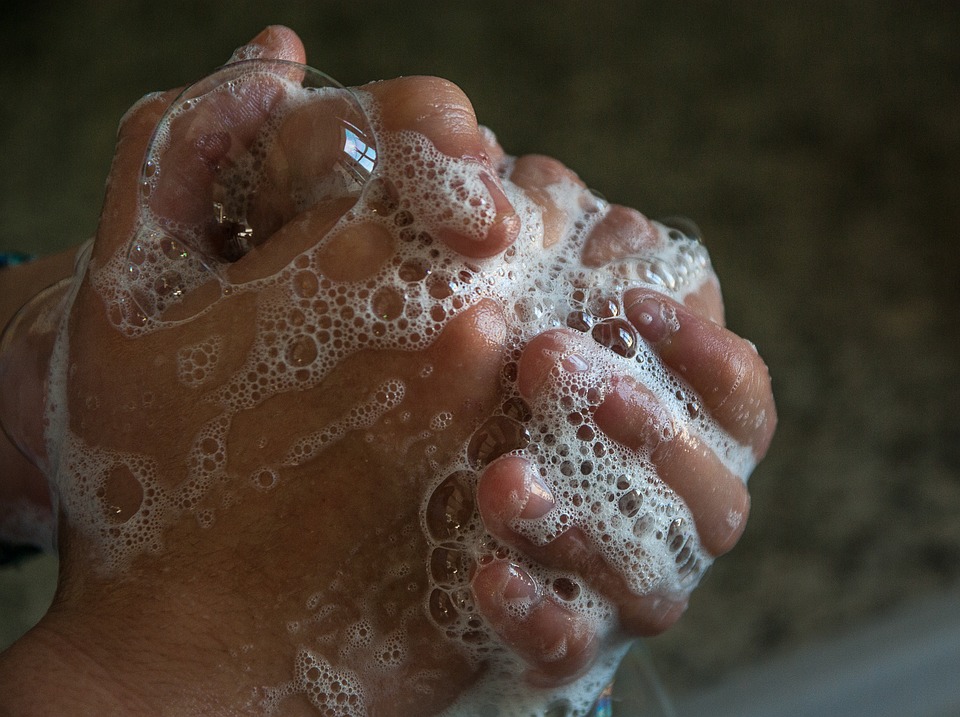This may sound weird but there actually are people who think they’re washing their hands correctly. However, there are certain things we need to look at in order for us to determine whether or not we’re washing our hands the right way. A Michigan State University study said that about 95 pecent of people neglect washing their hands the correct way to terminate the germs and bacteria in your hands. How will you know if you’re washing your hands the right way?
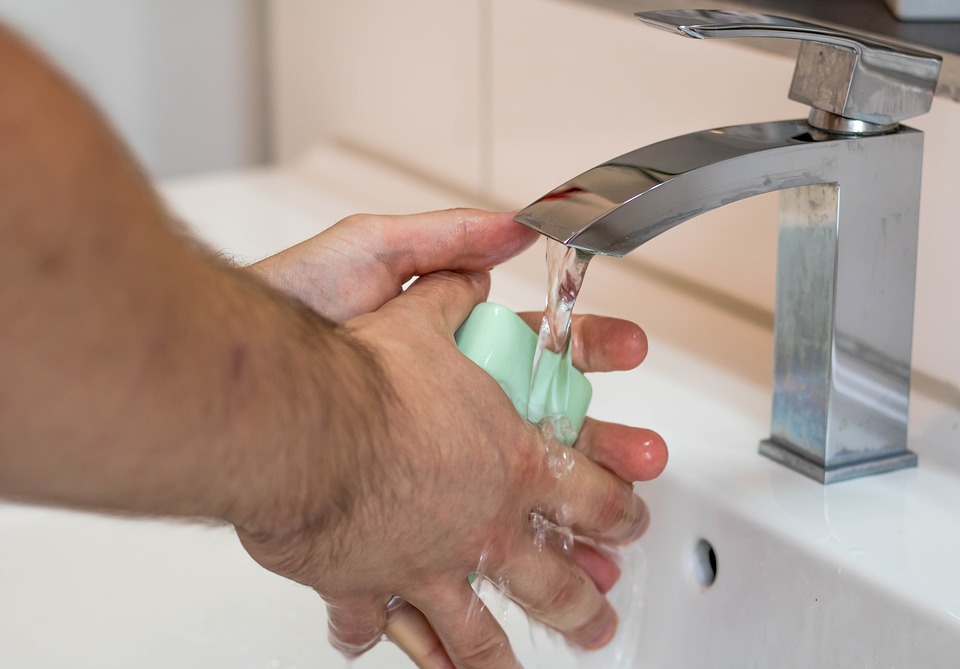
According to the Centers for Disease Control and Prevention, you need to scrub your hands, even far corners at least 20 seconds in order for you to successfully eliminate germs. Roshini Raj, MD., said that singing the Happy Birthday twice is legitimate. As a matter of fact, that’s what they tell children and adults when they wash their hands.
Read: Warning Signs that Tell You to Drink More Water
Sure that you’re washing your hands the right way? Here are things that you might be doing which can actually be ineffective in completely removing bacteria in your hands.
You don’t dry your hands out
Most people make the mistake of not drying their hands enough or not drying their hands at all. Germs and bacteria breed in moisture so leaving the restroom with damp hands is easier for germs to latch on your hands. According to a journal published in the Mayo Clinic Proceedings last 2012, using paper towels is compared to air blowers is better. The reason why is because they dry your hands better and leaves no room for germs and bacteria to travel to your hands.
Hot water is better for you… you think?
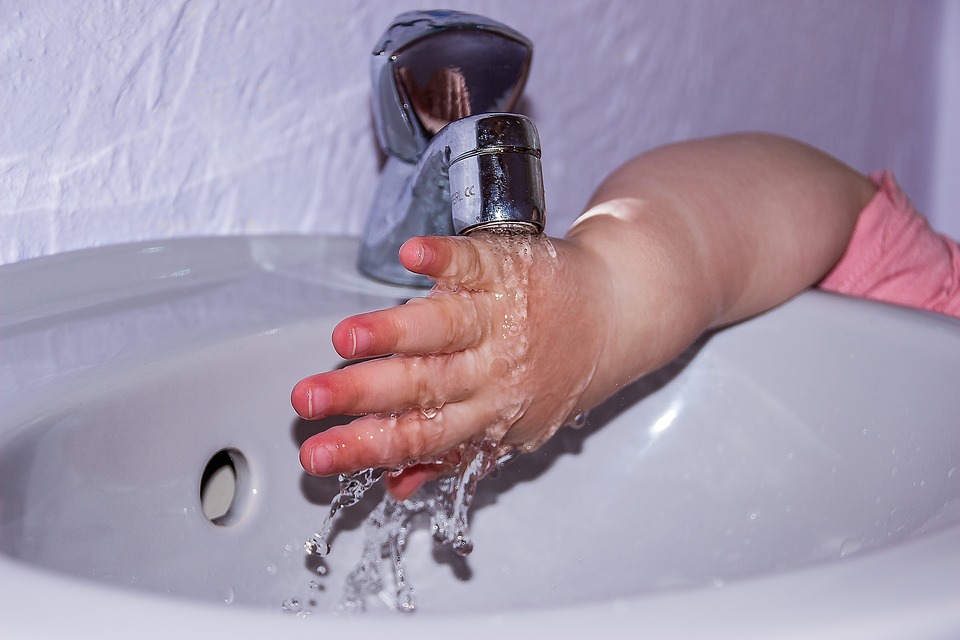
It is a widespread belief and myth that using hot water is better. However, that’s not always the case. As a matter of fact, cold or lukewarm water. There was a study done by researchers that said that using cold water is just the same in neutralizing and reducing levels of bacteria just as hot water. What needs to be done is to have your hands scrubbed and rinsed thoroughly as well as being dried.
Although we know that bacteria deteriorates if it gets heated, it needs to be at about 212 degrees Farenheit to notice drastic reduction in the pathogens in your hands. With that kind of temperature, it’s safe to say that applying hot water in our hands would really be effective… Now, you wouldn’t want that in your hands, would you?
Read: Why Drinking Warm Water In The Morning Should Be Everyone’s Thing
Washing your hands with only water
If you think that wetting your hands with only water is fine, think again. Even if you’re going to use hand sanitizer, it’s not an effective alternative to soap and water. In addition, people also use hand sanitizer incorrectly to successfully get rid of germs and bacteria because they don’t use a large volume of liquid sanitizer to wipe it off before it totally dries.
So, to be sure, doing the traditional water + soap combination is still the best when it comes to washing your hands. Although we can utilize a*****l, washing with water and soap is still a lot of times better.
You don’t wash it thoroughly
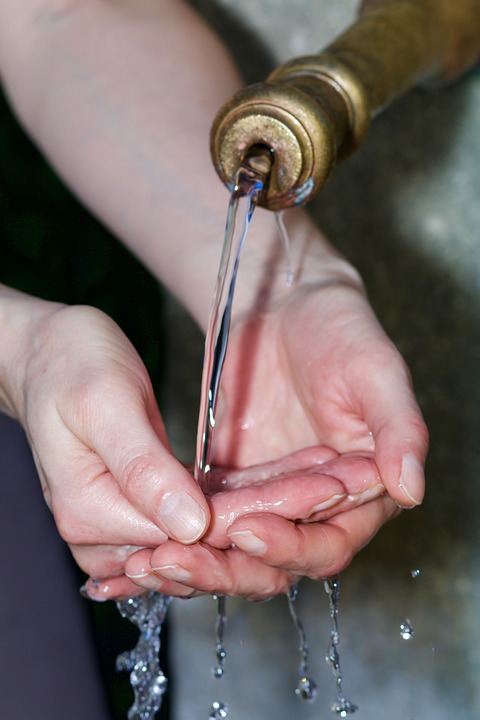
Rubbing water and soap between your palms is actually incorrect. That leaves your hands still dirty, as a matter of fact. According to Dr. Raj, germs and bacteria love to hide under fingernails and in between fingers where the moisture is abundant.
Read: 6 Foods That Are Actually Bad For Your Skin
Make sure to wash the back of your palms, in between your fingers, your fingernails, even your wrists. This is why singing the happy birthday song twice in normal pacing is the queue in the correct way of washing your hands.
Touching things right after you wash your hands
NSF International had a study last 2011 that said that nine percent of bathroom lavatories and faucets at homes were positive of bacteria coliform. Not only that, there also were which had molds and staph. These places have extreme moisture which bacteria and germs love to be on.
To be safe, don’t touch anything after you dry your hands thoroughly. Give about five (5) minutes before you succumb your clean hands to exposure. To turn off the faucet or touch the door of the restroom, use a paper towel to keep your hands clean.
Washing your hands is only done when you use the restroom
Of course, after using the loo or something much deeper, you need to wash your hands. Everything that you touch that other people touch, has the potential to have germs and bacteria. However, that’s not the case. Most people only wash their hands after they use the restroom. What we don’t know is that washing our hands should be done throughout the day to avoid catching bacteria we don’t need.
Read: Body Acne and What it Tells You About Your Health
You don’t rinse and wash your soap before using it
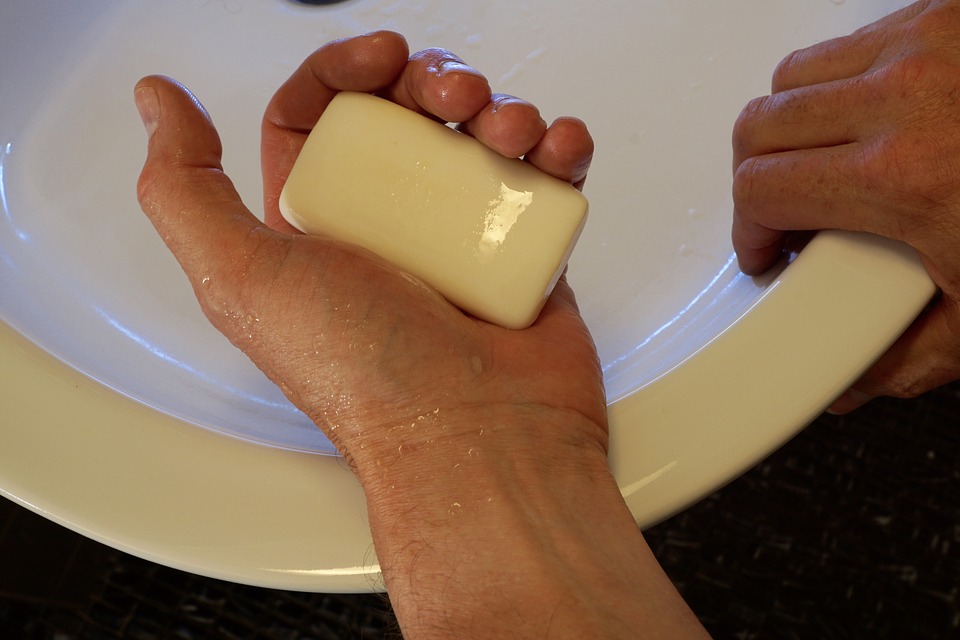
Who knew that even the soap we use is susceptible to bacteria? Yes, not washing your bar of soap before spreading it on your hands can bring in more germs than you can imagine. There was one study which stated that there might be germs lurking on your soap after and during use. Because of the moisture of the soap, it can actually transfer pathogenic organisms you do not want.
According to Elaine L. Larson, PhD., germs and bacteria can happily reside in and on the bar of soap because of its texture and its condition. However, you can easily get rid of them if you know what to do, according to her. Larson explained that,
Rinse off the bar in running water before lathering up to wash away the germy goop. And always store soap out of water (i.e. not in a wet bathtub), allowing it to dry between uses. That way, there’s no moist environment for germs to flock to in the first place. She shared this to the Huffington Post.
If you’re going to be in a situation where a sink and a clean soap is readily available, make sure that you have a*****l or a sanitizer with you. A*****l is actually better because it can eliminate unwanted germs and bacteria 60 percent as what normal washing with water and has is.
Read: Avoid Eating These to Make You Look Younger
Washing your hands is something that should never be disregarded. As a matter of fact, it’s where illnesses, diseases, and other conditions start. By having clean hands all the time, you can be safe from a lot of conditions which can be a nuisance to your health. Who knew that the simple act of washing hands could lead to a lot of safety or diseases?
Follow these tips to ensure that your hands are always kept clean and free-from bacteria.

